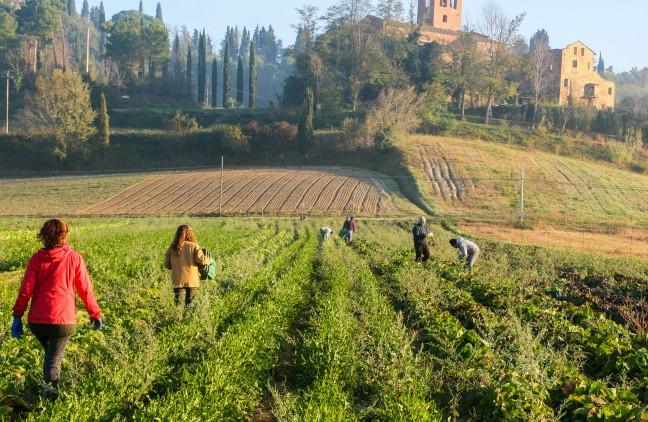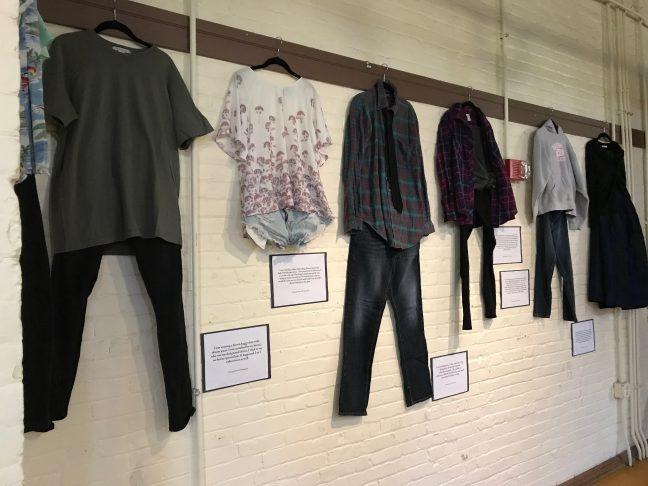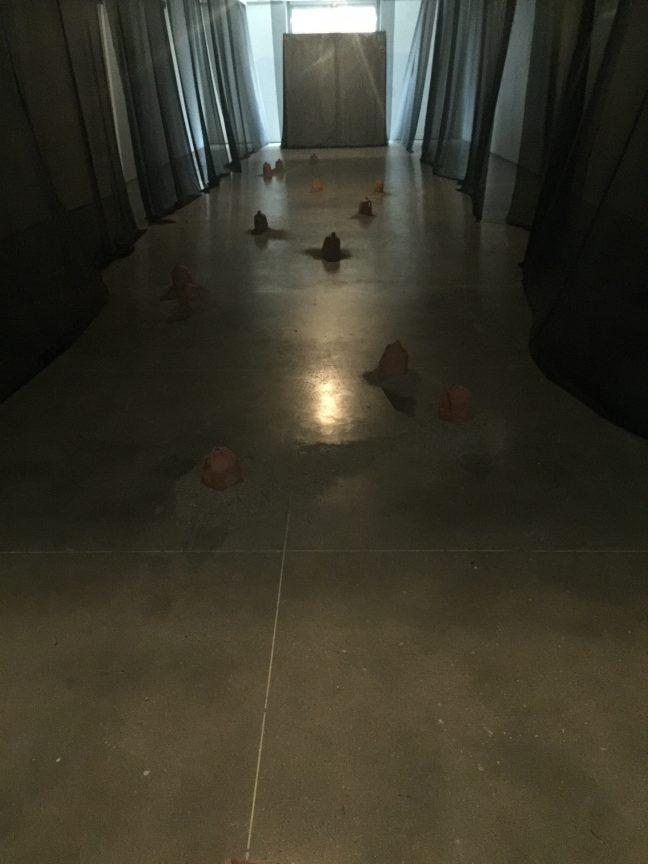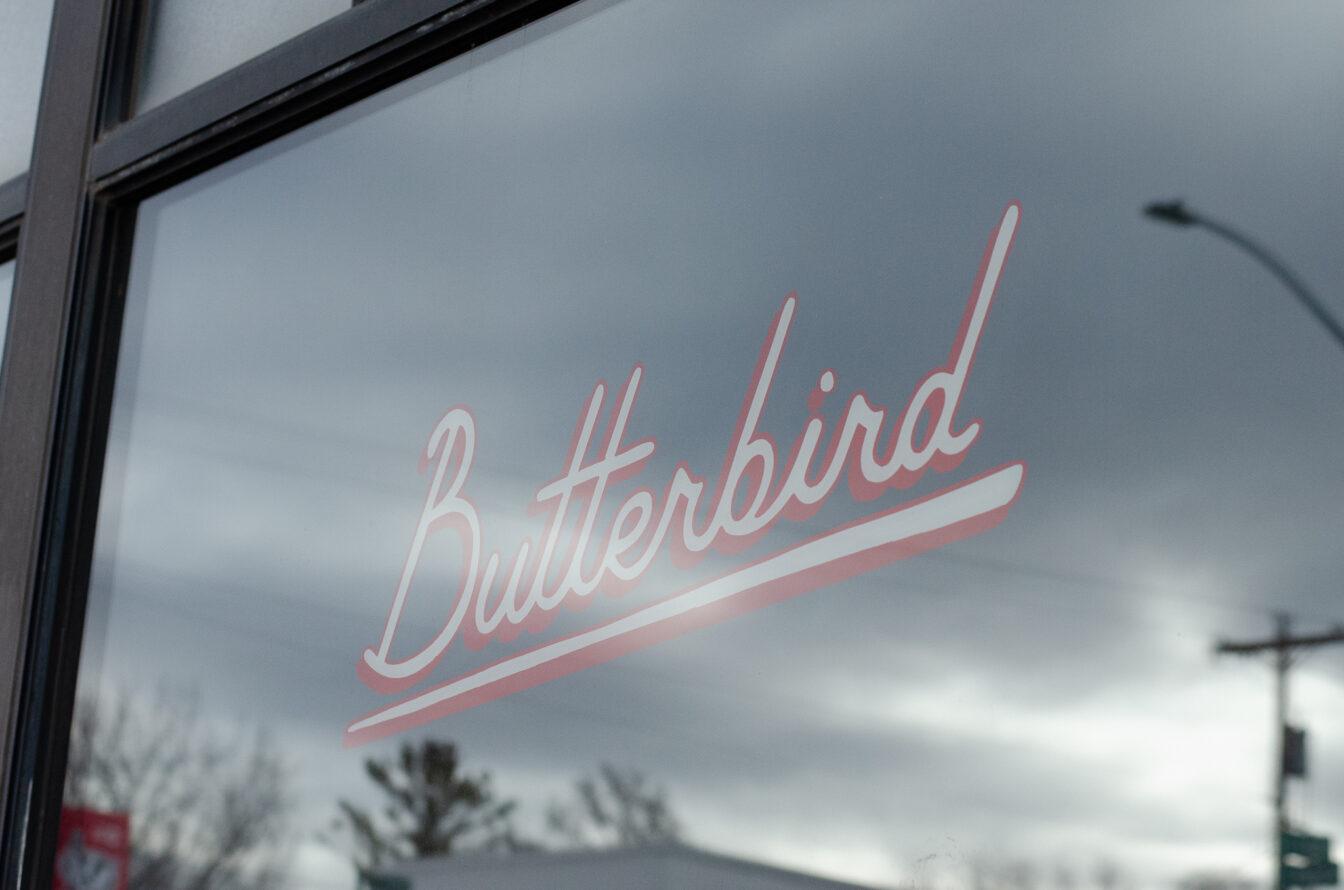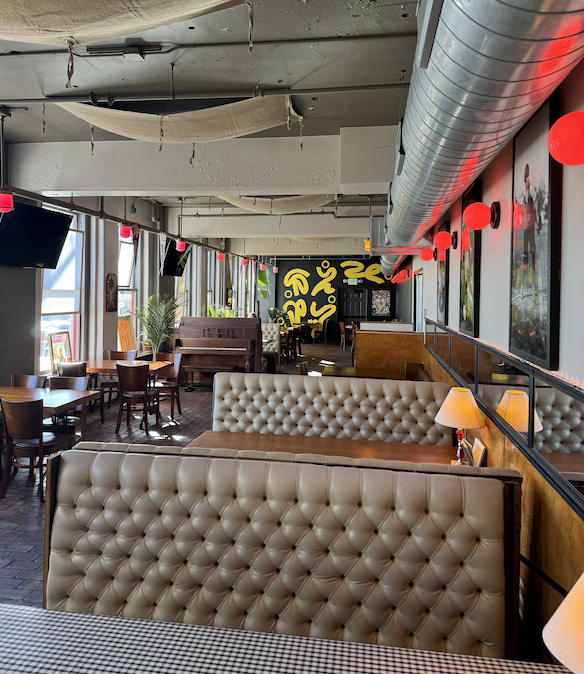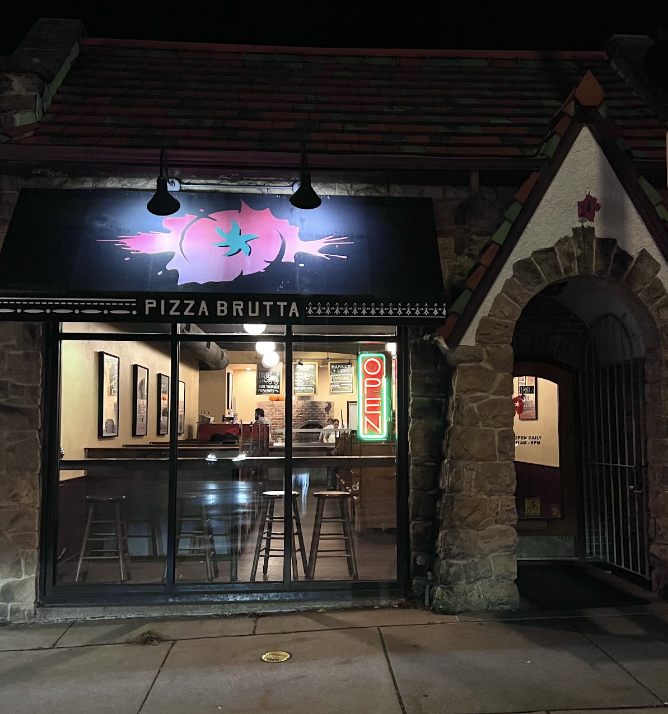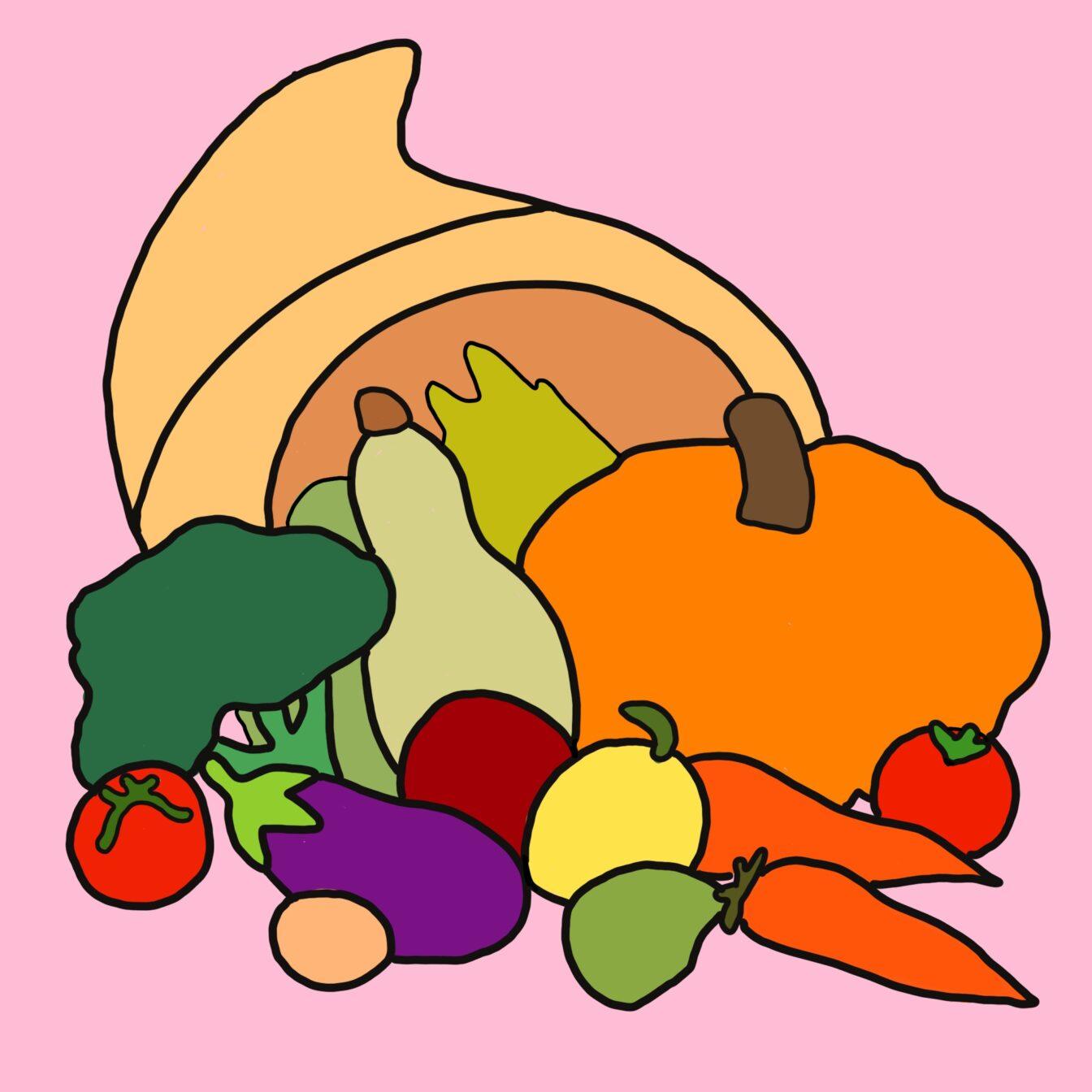I couldn’t help smiling as we drove down into the valley. Rolling hills topped by cyprus trees, pathwork farm fields spread like a carpet across an uneven floor and sporadic villas ruling over their little kingdoms of verdant land opened up before me in one of the most beautiful vistas I’d seen in a long time. I was in Tuscany, at the beginning of a seven-week stay at the Fattoria Di Corazzano, an organic vegetable farm where I would be working, eating, sleeping and occasionally stumbling home drunk to.
My stay at the Fattoria was organized through WWOOF, or World Wide Opportunities on Organic Farms, a nonprofit that functions as a network for willing volunteers to connect with organic farmers around the world. The organization was founded in 1971 as a way for overworked city folk to escape to the country and the relative peace of an agrarian lifestyle. It has grown to officially include over 60 countries and more than 12,000 farms. WWOOF sits at a happy intersection of farmers in lucrative locations needing help and willing volunteers looking to travel and learn.
In order to set up a stay, prospective volunteers must first join the WWOOF organization of the country they wish to work in. This gives them access to the contact information for all of the participating farms in the country along with a short description of the farm. Volunteers arrange their stay directly with the owners, determining what kind of work they would like to do, their living arrangements and how long they will be staying. Most farms ask for commitments of at least a month.

Volunteers are expected to work at least five hours a day. The type of work, ranging from picking grapes to herding goats to repairing farm equipment, depends heavily on the needs of the farm chosen. Along with the work, experiences vary broadly and depend on the farm, location and sometimes just plain luck. Common complaints include working at farms with little to no work to do, farms with unreasonable expectations and unfriendly workers.
The Fattoria Di Corazzano, however, is none of these. In operation for five years, it encompasses fifty acres of farmable land worked by a small team of young farmers determined to honor the principles of organic farming. The farm produces mainly vegetables, although it includes a small vineyard as well. Over 90 varieties of vegetables are harvested, cleaned and packaged on site and delivered throughout Tuscany to homes and restaurants. The dozen or so workers, assisted by a steady complement of international volunteers, do much of the work by hand.
The work starts at 7 a.m., with the air still chilly from the night. The sun breaks the valley’s rim as we ride out on the tractor on our way to the morning harvest, which takes roughly five hours. Zucchini, eggplant, kale, chard and green beans are some of the many different crops brought back to the shed, where a team of workers — led by tireless, older Sylvana — cleans and packages them. Afternoons are for planting, weeding and general farm upkeep and begin after a two-hour siesta, most of which is taken up by making and eating the large midday meal, followed by lazy conversation and Facebook checking. The work is physical but rewarding, and fosters a palpable sense of connectedness with the land. The simplicity of working, eating, sleeping and repeating can be an attractive contrast to the chaotically multifaceted nature of college life.
WWOOFers look for different things from their time on the farm. Some want to study organic farming methods. Some want a cheap place to stay in a foreign country. Some simply want to explore an alternative lifestyle. In addition to the farming component, one of the greatest benefits of WWOOFing is the cultural exchange made possible by living and working with people from a different country. At the Fattoria Di Corazzano, the workers were open and generous. They were eager to ask and answer questions. They invited volunteers into their homes for dinner and out for their birthdays. Once, they drove out to the coast to pick us up after we were stranded by a train strike.

After five years of operation, the farm has finally begun to turn a profit. Constant fine-tuning of the agricultural processes, an expanding customer base and a team of knowledgeable workers all worked to create a functional and somewhat financially stable organic farm. However, this critical juncture arrived too late. Having invested all of his money in the farm without any returns, owner Carlo Agliardi is looking to sell. He proposed an offer to sell the farm to the workers and form a collective, but even at a steeply discounted 2 million euros, the price tag was far too high for the young workers. As of right now, the farm’s existence is contingent on finding buyers willing to accept the risk of running an organic farm.
By all accounts, the farm has been quite successful. According to multiple workers, turning a profit in five years is admirable for a farm, and optimistic projections may be in part to blame for the farm’s troubles. Another factor may be the inherent difficulties of entering a profession dominated by tradesmen who have generations of experience to draw from. Carlo is a businessman, and the farm has been successful insofar as it is a business, but it has struggled as a farm. It’s a good thing — an admirable thing — that he’s done, multiple workers said, but he remains a businessman, not a farmer. The stark difference between business and farming has created some unhappiness among the workers. Naming off coworkers and waving his arms to encompass everyone in the room, one worker said, “They are family. Carlo, he is not family.”
Happy, productive, kind to the earth and also on the brink of closing, the Fattoria Di Corazzano offers a mixed perspective on organic farming. Is it good? Undoubtedly. Harsh industrial pesticides and overfarming destroy the environment. Is it plausible? A tougher question. Organic farm yields are, on average, 20 percent less than those of commercial farms, according to a 2011 paper published in trade journal Agricultural Systems. This makes organic products more expensive, anywhere from 10 to 30 percent in the U.S., according to USDA estimates. For a world facing chronic food shortages, asking everyone to go organic is a hard sell.

For those with the means however, organic food has many benefits. While organic food may not be inherently healthier, it contains far fewer pesticides and no chemicals additives, which can lead to health risks down the road. Organic food is also much kinder to the environment. The use of natural fertilizers and pest control as well as sustainable practices such as crop rotation ensure that growing food doesn’t mean polluting rivers and overexploiting the soil. Just as with WWOOFing, organic food isn’t the answer for everyone, or to everything. But it does offer a powerful solution to a raft of problems that have been piling up in modern society. It may be a more simple and elegant solution than we ever thought possible.








